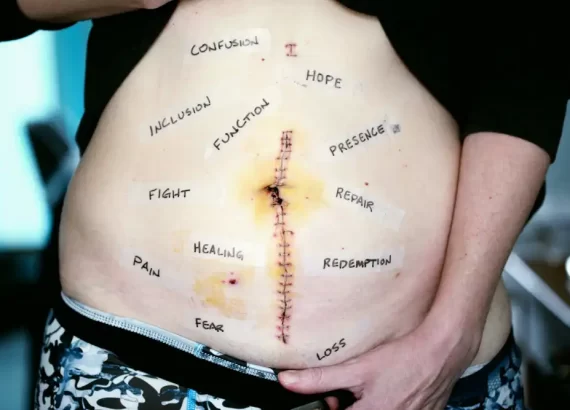What Are Signs of Attachment Trauma in Adults?

We all carry our past with us as we move through life, but for some, that past is an anchor. It weighs us down and keeps us tied to the trauma of our childhood. Like an anchor, our attachment trauma keeps us from finding open waters so we can move forward with our lives.
Our lives are colored by the patterns formed in childhood. We soak up the relationships around us and take lessons from the way our parents and caregivers treat us. Those lessons form the basis of our future relationships. In this article, we’ll examine what attachment trauma is and how to identify signs of it in adults.
What is Attachment Trauma?
Our brains remain remarkably adaptable throughout our lives, but they are especially malleable during early childhood and teenage development. During this time, we form relational beliefs and behavior patterns that stay with us throughout our lives. In simple terms, attachment trauma relates to the wounds left on our psyche by neglect, abuse, and inconsistency from our caregivers. In most cases, these wounds are the result of prolonged, repeated traumatic experiences.
Some of the factors that can contribute to attachment trauma include:
- Physical or emotional neglect
- Physical, emotional, or sexual abuse
- Inconsistency in caregivers (unpredictable moods, outbursts, or periods of depression)
- Substance abuse in family members
- High-conflict divorce
- Death\loss of a family member
- Dangerous or unstable environment

In addition to these factors, abuse can sometimes be harder to define. Some parents put their children in the caretaker role. Others isolate their children from other caregivers and siblings or otherwise undermine and sabotage family relationships. Children grow up holding fractured, uncertain views of themselves and others when this happens. Relationships are seen as fraught, dangerous things.
Signs of Attachment Trauma in Adults
Adults carry their childhood experiences into their relationships, often without realizing it. Patterns and behaviors learned as children sometimes repeat themselves, leading history to repeat itself. In cases where children grow up with abuse in the household, they often tolerate similar behaviors as adults. When you weren’t taught to love yourself as a child, setting boundaries and loving yourself as an adult is difficult.

Here are some of the top signs of attachment trauma in adults:
- Avoidance of Intimacy
- Clinginess\possessiveness
- Codependent behavior
- Conflict avoidance
- Controlling behavior
- Difficulty trusting others
- Emotional dysregulation
- Fear of abandonment
- Inability to set boundaries
- Insecurity
- Low self-esteem
- Mood swings
- Push-pull behaviors
- Self-sabotaging behavior
- Shame or guilt
Adults with Attachment Trauma may struggle to form long-lasting relationships with others. We can organize the various impacts of attachment trauma by examining Attachment Theory, which broadly relates to how we interact with potential romantic partners, friends, and coworkers:
- Anxious-Preoccupied- Exhibiting dependence on partners for validation; living in fear of rejection or abandonment.
- Avoidant-Dismissive- Independence is prized above connectedness. May struggle with emotional intimacy.
- Fearful-Avoidant (Disorganized)- A desperate desire for closeness, combined with a fear of abandonment or rejection. This may result in push-pull dynamics in a relationship.
Other Symptoms & Behaviors
Attachment trauma, like types of trauma, results in prolonged exposure to stress hormones like cortisol. This is a natural response to high-intensity, uncertain, and unstable living conditions. Prolonged exposure to stressful and traumatic experiences can lead to the following:
- Anxiety
- Depression
- Chronic pain
- Hypervigilance
- Indigestion\nausea
- Panic attacks
While many of the symptoms are psychological in nature, elevated levels of stress hormones over a long period of time can create wear and tear on the body. It’s a risk factor for obesity, insomnia, and a wide variety of other physical problems that can result from hormone imbalances.
Schedule a Consultation with Mindspace Counseling
If you think you might be anchored in place by attachment trauma, reach out to schedule a consultation. Mindspace Counseling provides online therapy for clients located in Charlotte, Raleigh, Durham, Cary, and other areas of North Carolina. We have compassionate counselors trained in effective treatment modalities such as Cognitive Behavior Therapy, Dialectical Behavior Therapy, and EMDR. You can reclaim the sense of safety, agency, and trust you may have lost in your childhood. You did what you had to in order to survive—now it’s time to let go of the past and start living in the present.




